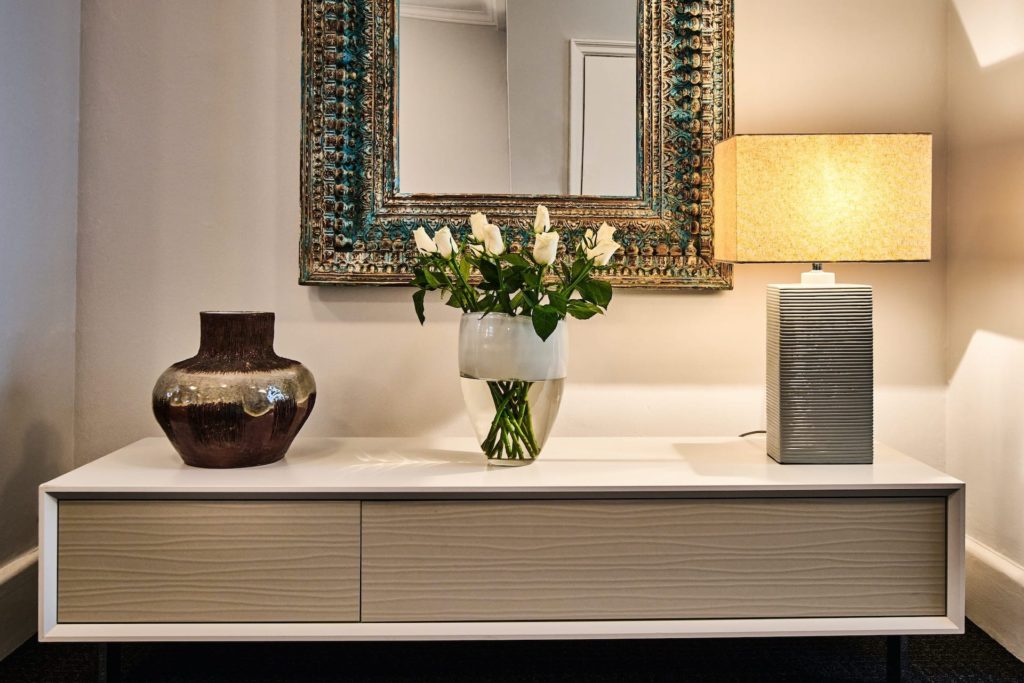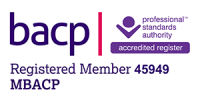
So, you’ve decided to start therapy or counselling, but how do you choose the right therapist or counsellor for you? And what does ‘the right therapist’ even mean anyway? How do you know when you’ve found them?
Don’t be put off before you start!
If you’ve never had counselling before, finding the right therapist for you can feel intimidating. Searching through the online profiles of dozens of mental health professionals’ offering many varieties of talking therapy can be particularly daunting. The task of narrowing those therapists down may feel overwhelming, but please don’t let that put you off starting therapy.
In this article, I aim to take the stress out of the search. I want to help you to find a therapist who is a really good fit for you.
If you’re unsure whether therapy is for you, you may find these articles helpful:
What to expect in couples counselling
What do I talk about in counselling?
If you are ready to find a therapist, read on!
How to choose a mental health professional online
For most people, the process to find a therapist will start online. Unlike finding a plumber or a hairdresser, personal recommendations aren’t so useful when it comes to counselling. A good counsellor won’t take on clients who are known to existing clients of theirs.
It’s about giving you a secure, confidential space where you’re not worrying about what the therapist already knows about you from their other client. You need to be able to speak freely about every person in your life, confident that your therapist doesn’t know them. So if your friend has a great counsellor, unfortunately they’re not the best therapist for you.
Shop around
That probably means you need to find a therapist based purely on the information you can read online. You may find you need to try a few counsellors before you find someone you feel comfortable with. If so, that’s fine.
As integrative therapist Catherine Hammett advises, “Shop around if you need to. Is the therapist you are talking to on your wavelength? Can you trust them to be attuned and caring, but also gently challenging? It’s great to be able to say, ‘Yes, I think I can work with you,’ but it’s also okay to say ‘I don’t think we are a good fit.’”
Try a group practice
An advantage of booking with a group practice like One Therapy London is that in most cases there will be several therapists available who are a good fit. If the therapist you first meet isn’t the right person for you, they can refer you to a colleague.
At the end of the first appointment, our therapists ask clients whether it feels like the right fit for them, or if they’d like to be referred to one of our other therapists. So you’re not committing yourself to a particular therapist when you book your first session. You’re there to tell them about what you’re looking for from therapy, and they’re there to help you find that. If that approach sounds good to you, do get in touch.
How to choose a good therapist in the UK – setting your criteria
Of course, even if you decide to go with a group practice, you’re still likely to be given a choice of therapists for your initial consultation, so it’s useful to think about your criteria.
I will say, though, not to get too hung up on finding a therapist who meets all your criteria. The most important thing is to find someone who you feel comfortable opening up to and think you will be able to build a strong relationship with. Your criteria are just about narrowing down your search.
Is the therapist a member of a professional body?
Qualifications and registrations differ from country to country, but in the UK it’s critical that your potential therapist is a member of a professional body such as the British Association for Counselling and Psychotherapy (BACP), the UK Council for Psychotherapy (UKCP) or the College of Sexual and Relationship Therapists (COSRT).
To belong to these organisations, therapists must have completed professional qualifications and must adhere to strict codes of ethical practice. Personally, I wouldn’t dream of putting my mental health in the hands of someone who didn’t meet those standards, so this one’s a non-negotiable in my opinion. All of One Therapy London’s therapists belong to one of these three organisations.
Do you want a counsellor or a psychotherapist?
We tend to use the words counsellor, therapist and psychotherapist interchangeably. However, sometimes counsellor can suggest a less rigorous training than psychotherapist.
Do you want your therapist to bring up your issues?
When we choose a counsellor, we often go for someone who feels safe. If we have issues around men, for example, we might choose a female therapist. There’s nothing wrong with that – it’s important to recognise if you need that to feel comfortable starting therapy.
However, sometimes therapy can be really powerful if you choose a therapist whose very person brings up your issues. Imagine how transformative a supportive, boundaried relationship with a male therapist could be to the client who has mental health issues around men, for example. So before you instinctively choose a comfortable therapist, ask yourself whether the challenging option might serve you better.

Do you want your therapist to be similar to you?
In the same vein, clients often choose counsellors who share their ethnicity, religion, sexuality, mother tongue, cultural background, etc. Again, this may sometimes be necessary for you to feel safe and able to open up, but it isn’t always helpful.
As Yussef Ferguson, a psychodynamic therapist points out, “Sometimes relatability may be an important factor to consider, as you may feel that you can identify better with a therapist with similarities to you. Or the opposite may be equally beneficial as this can sometimes help to challenge a particular way of thinking, or help you to acquire a different perspective on a thought or dilemma.”
What therapeutic approach are you looking for?
There are many different approaches or schools of psychotherapy, including psychodynamic, person-centred, cognitive behavioural (CBT) and integrative. The type of therapy is another point not to get too hung up on, as research has shown that the relationship between the mental health professional and client is more important in predicting the success of therapy than the therapeutic approach.
That said, CBT tends to suit short-term work focusing on less serious issues and has been shown to work well with obsessive compulsive disorder, while psychodynamic and person-centred counselling tend to be slower, deeper work. Integrative therapists are trained in multiple approaches, so they are a good bet if you’re unsure what type of therapy suits you.
What practical aspects will help you to stick with therapy?
Please don’t sabotage your mental health by choosing a therapist who you won’t be able to continue with long-term for practical reasons. Think about the following to narrow down your field:
Location
It sounds obvious but location is really important. If you have to take multiple buses or trudge through the cold and rain to get to your appointments, you may be more tempted to skip them. Think about privacy too though. If you choose a therapist round the corner from your home, will you feel comfortable arriving at your appointments knowing that your neighbours might see?
Cost
Choose a counsellor whose fees you can afford to pay on an ongoing basis, not just for a month or two. There are plenty of affordable therapists out there. Many therapists decide their fees using a sliding scale to make their services available to as many people as possible.
Be discerning though and go for the best you can afford: some therapists charge low fees because they struggle to keep clients, while good therapists can charge more because their appointments are in demand.
Boundaries
This is high on my list of criteria when I want to find the right therapist myself. The longer I’ve worked in this field, the more convinced I’ve become that the best mental health professionals have strong boundaries. Therapy works best when it’s regular and consistent, so I look for therapists who have the strength to stand by that. Ad hoc sessions and flexible cancellation policies are warning signs to me.
Of course for some people, like shift workers, they’re a necessity, but I recommend choosing the least flexible therapist you can! They’re likely to be solid, serious and unafraid to hold your feet to the fire.

How to choose a therapist on an online platform
My passion for boundaries is why I wouldn’t recommend an online platform as a place to find your therapist. Online therapy platforms tend to push counsellors to be flexible, to meet the immediate desires of clients rather than providing the boundaried, structured approach that is more beneficial long-term.
If it is important to you to have some or all of your sessions online, include that in your criteria. Most therapists offer online therapy as well as face to face therapy sessions, so you don’t need to use an online platform.
How to choose a good therapist for anxiety or depression
Most therapists are able to work with most issues, so you don’t need to look for a specialist for common issues such as anxiety, depression, relationship issues or stress. There are some issues where it is wise to choose a particular therapist with further training or experience. These include eating disorders, substance use/addiction and some sexual problems.
If you are unsure whether you require a specialist, this is another instance where it can be helpful to approach a group practice, as they will be able to advise you and find the right therapist for you.
The initial contact – how to decide if it’s a good fit
So, you have narrowed down your online search and selected a potential therapist (or two or three) to contact. How do you now decide whether it’s a good enough fit to continue with them?
The most important thing is how you feel when you’re talking to them. As integrative therapist, Marta Pisarri says, “Clients should consider if they feel comfortable, safe and emotionally attuned with the therapist they have met. This process can take more than one session and it may vary during the course of therapy.” If you are able to open up without feeling judged when you first meet a therapist, that’s a good sign.
There are a few other things I would look for:
Are they professional?
Is communication clear, courteous and prompt (within 24 hours)?

Is the therapy room clean, calm, tidy and comfortable?
This demonstrates that they take their work seriously and are committed to giving you a good experience of therapy.
Is the setting secure and confidential?
You need to feel confident that you will be able to talk freely. Any therapist that allows others to enter the room or to be within earshot is a non-starter.
Do other clients stay with them long-term?
This is a hard one to gauge, but you can always ask them. As a rule of thumb, clients stick with good therapists. I would be looking for someone who typically keeps their clients for at least six months, preferably over a year. I’d also walk away from any counsellor who promises a quick fix. It’s the ones who talk about long-term, deep work who will serve you best.
Do they help you to get into your feelings if you tend to stay in your thoughts?
I’m naturally more a thinker than a feeler, so if I cry in my first session, it’s a good sign. It means they’re able to support me to go to the places I need to go.
Is the counsellor boundaried when you meet them?
I’ve already discussed the importance of boundaries, but there are aspects that might only come to light once you’re in the therapy room with them. Starting and ending the session on time is a good sign.
Beware of therapists who talk about themselves beyond their training and experience. As a rule, we don’t disclose personal information. I won’t go into the reasons here, but therapy works better when the client doesn’t know about the counsellor’s personal life. So if they tell you about their family or their own experiences, think twice about them. Similarly, if their therapy room discloses information about their personal life, you might want to look elsewhere.
What do we mean by “the right therapist”
Finally, I want to return to the question I asked at the start. What does “the right therapist” even mean anyway? It means someone you can open up to without feeling judged. They don’t have to be perfect, so don’t get too hung up on your criteria. They just have to be good enough that you want to come back and talk to them next week.
As Catherine Hammett puts it, “Good therapy is founded upon a sound connection between client and therapist, so trust your gut feeling. The important thing is that you are met with empathy and respect for your experiences.”
I hope this has been helpful and wish you luck finding the right therapist for you. Our many London therapists are ready to support you with your specific concerns and to bring about positive change in your life. So if we can help please get in touch.


